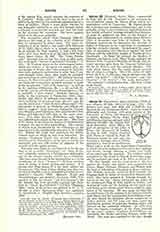

Sixtus III (XYSTUS), Saint, POPE, consecrated July 31, 432; d. 440. Previous to his accession he was prominent among the Roman clergy and in correspondence with St. Augustine. He reigned during the Nestorian and Pelagian controversies, and it was probably owing to his conciliatory disposition that he was falsely accused of leanings towards these heresies. As pope he approved the Acts of the Council of Ephesus and endeavored to restore peace between Cyril of Alexandria and John of Antioch. In the Pelagian controversy he frustrated the attempt of Julian of Eclanum to be readmitted to communion with the Catholic Church. He defended the pope’s right of supremacy over Illyricum against the local bishops and the ambitious designs of Proclus of Constantinople. At Rome he restored the Basilica of Liberius, now known as St. Mary Major, enlarged the Basilica of St. Lawrence-Without-the-Walls, and obtained precious gifts from the Emperor Valentinian III for St. Peter’s and the Lateran Basilica. The work which asserts that the consul Bassus accused him of crime is a forgery. He is the author of eight letters (in P.L., L, 583 sqq.), but he did not write the works “On Riches”, “On False Teachers”, and “On Chastity” (“De divitiis”, “De malis doctoribus”, “De castitate”) attributed to him. His feast is kept on March 28.
N. A. WEBER

